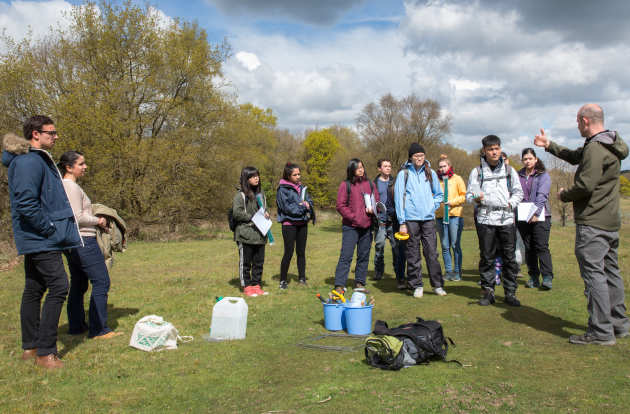 Many factors need to be considered when assessing the level of supervision required for any particular offsite work. Supervision requirements will vary tremendously, for example an inexperienced group of first year students will require a higher level of supervision than would be necessary for postgraduate student level.
Many factors need to be considered when assessing the level of supervision required for any particular offsite work. Supervision requirements will vary tremendously, for example an inexperienced group of first year students will require a higher level of supervision than would be necessary for postgraduate student level.
Factors that must be considered as part of the risk assessment include:
• The nature of the offsite work.
• The environment and conditions in which the offsite work takes place.
• The experience of the members of staff in supervisory roles.
• The experience of the group.
• The needs of individuals taking into account their age, level of maturity, and any individual special needs.
• External requirements, e.g. requirements of regulatory authorities or bodies, local laws and customs.
Direct supervision
Where a responsible member of staff is in charge of the participant(s) at all times and is able to intervene in person immediately if necessary. This type of supervision is usually appropriate for high risk activities or for less experienced participants.
Indirect supervision
A situation where the responsible member of staff manages the offsite work but would be unable to intervene in person immediately.
Actions
• Offsite workers must have some form of supervision, the level of which would be dependent upon the risk.
• Assess the risks arising from the offsite work taking into account the points mentioned previously to determine the level of supervision required to secure the health and safety of participants.
• Identify any lone working during risk assessment and specifically include lone working arrangements in relevant plans at all stages.
• Identify what level of support and supervision may be offered by a host organization where applicable.
• The level of indirect supervision must be agreed by the supervisor and participant prior to the offsite work commencing.
• For supervised offsite work identify the extent of any proposed down time and communicate to the participants prior to any commitment to participate, and so far enough in advance of the offsite work to allow participants to plan.
• Take into account the age of or any special needs of the participants in the management of personal time
• If there is a likelihood that the party will split into smaller groups ensure that adequate supervisor deputising arrangements are in place to maintain effective levels of supervision.
• Ensure that contingency plans have considered the impact of the loss of a supervisor due to accident or illness or being occupied with a difficult issue.
• Assess and train participants before allowing any indirectly supervised offsite work.
• It is the responsibility of the PI and offsite work leader to ensure that the level of supervision is adequate for any given situation and to make necessary adjustments to itineraries in the interests of safety, including, where necessary, cessation of an activity. The leader must be explicitly empowered to do so.
• For indirect supervision, agree a schedule of communication between offsite work leaders or supervisors and workers
Exchanging information
The provision and exchange of clear information between the involved parties is critical for all offsite work.
Information must be provided sufficiently well in advance of the proposed work to allow any areas of concern to be raised and addressed. Timely provision of information allows for the purchase of any equipment, further medical advice to be sought if necessary, and adherence to the planning, risk assessment and consent requirements mentioned in earlier sections